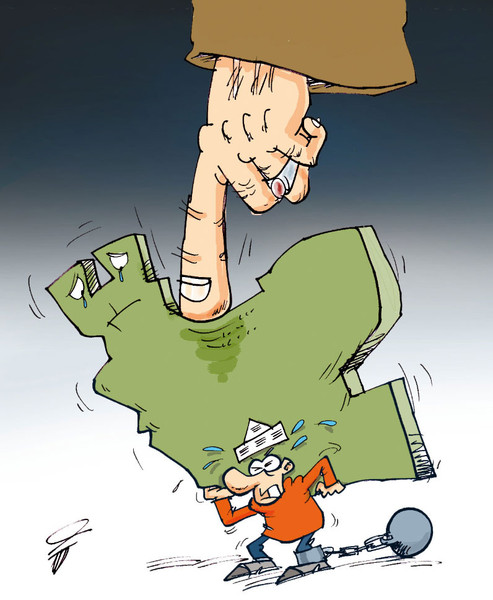 Farideh Farhi writes for LobeLog:
Farideh Farhi writes for LobeLog:
Since Saturday, more than a dozen young journalists working for five reformist newspapers and journals, one news agency (Iranian Labor News Agency or ILNA), and one website (Baztab), have been arrested mostly at their place of work on order from the Iranian Judiciary. Little is yet known about the reasons for their arrests (one has already been temporarily released). But Iranian news media outlets are suggesting that their arrest warrants were issued by the Judiciary based on the charge of cooperation with “Persian anti-revolutionary media” located outside of Iran. Meanwhile, the Minister of Culture and Islamic Guidance said today that he is “sure their charges are not media related.” In other words, he is saying that they were not arrested for what they wrote.
The arrests come on the heels of reports of harassment suffered by families of journalists who work for BBC Persian and just a week after the spokesperson for the Judiciary, Mohseni Ejei said that “reliable sources” had told him that a number of journalists, along with those writing for domestic newspapers, “have their hands in Western and anti-revolutionary hands,” whatever that means.
About three years ago, the Intelligence Ministry made “contracts and receiving of resources” from 60 foreign institutions, including Persian speaking media, illegal as part of its attempt to manage the “Soft War” waged against Iran by Western enemies. In 2011, the Ministry arrested 6 filmmakers on charges of cooperation with BBC Persian despite the BBC’s denials that anyone works for its news service in Iran.
The recent arrests, however, are by the Judiciary and not the Intelligence Ministry, and if the reporting of Fars News is to be taken seriously – and that’s a very big “if” – the journalists’ “crime” was “attempting to participate” in the BBC’s online photojournalism classes with the intent of shooting films with their mobiles and presumably sending then to the BBC eventually.
In addition to these arrests, the popular conservative website Tabnak has now become completely blocked. Tabnak belongs to former IRGC (revolutionary guard) commander and presidential candidate, Mohsen Rezaie, and had been operating without filter. According to Fararu, another conservative website, the popular site was blocked because of the publication of improper reader comments (public insults against religious authorities is against the law and punishable; in the same way, contact with Persian-language “anti-revolutionary” sites is also considered illegal).
As Jamshid Barzegar of BBC Persian has written, the simultaneous arresting of journalists is unusual for two reasons. First, while during the height of the reform era a number of newspapers were closed at the same time (hence depriving many journalists of work), this is the first time such a large number of journalists have been arrested in their work environments. Second, the arrests — combined with the blocking of Tabnak – provide a hint that there has been a change in the pre-election norm of relative openness for the media.
The Iranian leaders’ desire to increase participation rates in the presidential election has usually been deemed reason enough for pre-election relative media openness. In this context, the question of whether these moves indicate that the Iranian leadership could care less about participation rates in the presidential election becomes an important one. The worry that the election might get out of control seems to be trumping the desire to elicit higher participation rates as an indicator of state legitimacy.
The way the Iranian deep security state continues to show its pre-election nervousness is nevertheless puzzling.
Posted via email from lissping
No comments:
Post a Comment
Note: only a member of this blog may post a comment.